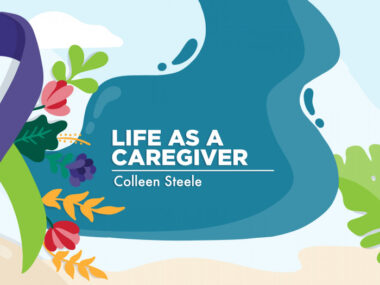Finding my real-life story in fictional tales told by others
I'm always surprised to discover relevance to my life in books
Written by |

As an avid reader who lives with a chronic illness, I’ve always looked for stories to which I could relate. When I was a teenager, I read “The Fault in Our Stars” by John Green, which followed the life of a 16-year-old girl with terminal cancer. It was one of the first stories in which I felt a strong connection to the main character.
As I’ve grown older, I’ve became somewhat more skeptical about the way the media depicts complex illnesses. Much of it has felt inauthentic compared with my lived experience. Part of this had to do with the niche set of issues I’ve faced, given the rarity of pulmonary hypertension and organ transplants. But it also stemmed from the fact that able-bodied people were often the ones authoring these stories about illness.
This incongruence is an issue in and of itself. As the discourse about disability increases, my hope is that there will be more disabled voices rising to share their accounts firsthand. But prior to that happening, I’ve learned to look for themes that feel relevant to my life in places where the author may not have even intended them.
Discovering my story in the words of others
Two years ago, I picked up “The Metamorphosis” by Franz Kafka, not knowing what to expect. The story is an absurd allegory about a man who wakes up to find he’s been transformed into a massive, bed-sized insect. As the story unfolds, it describes how this change burdens him and his family in very tangible and thought-provoking ways.
The story brought me to tears. It’s believed that Kafka was attempting to depict the woes of the body as it breaks down later in life. But for me, it was such a perfect description of how it feels to wake up in a body that does not operate as it’s needed to. What also resonated with me was the complex sense of guilt that comes with relying on caregivers.
Just this year, another book that had a significant impact on me was “I Who Have Never Known Men” by Jacqueline Harpman. It’s a bizarre story about a group of women who’ve been kept in a bunker and break free, only to find themselves stranded on a never-ending expanse of land, finding no answers no matter how far they travel. Slowly, the years go by and they pass away one by one until only the narrator remains.
This story touched on a number of themes, but the entire setup felt remarkably similar to facing the unalterable landscape of an incurable disease. The women have no ability to change their circumstances or to find answers about what had happened to them. Instead, they choose to persist as long as they are able, making the best of the few small wonders they are afforded along their journey.
I wish more fictional stories felt specifically tailored to the life I’ve lived. But it’s a great surprise when I’m able to pick up an abstract work of fiction, only to find that the themes are relevant to my own story. I suppose it’s a good reminder that the human experience is universal. Regardless of what we go through, our similarities will always outweigh our differences, and art will forever continue to reflect that.
Note: Pulmonary Hypertension News is strictly a news and information website about the disease. It does not provide medical advice, diagnosis, or treatment. This content is not intended to be a substitute for professional medical advice, diagnosis, or treatment. Always seek the advice of your physician or other qualified health provider with any questions you may have regarding a medical condition. Never disregard professional medical advice or delay in seeking it because of something you have read on this website. The opinions expressed in this column are not those of Pulmonary Hypertension News or its parent company, Bionews, and are intended to spark discussion about issues pertaining to pulmonary hypertension.





Paige
Anna, you write so beautifully. Why don’t you write the stories you’re seeking? I would read them!